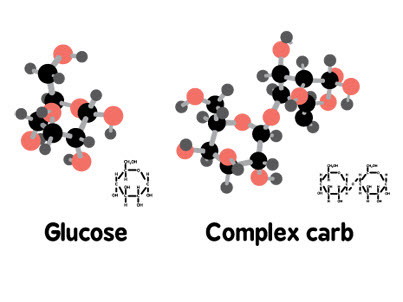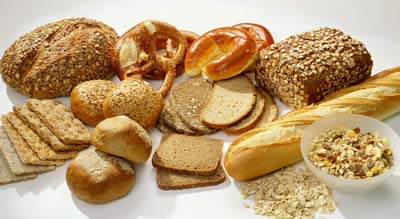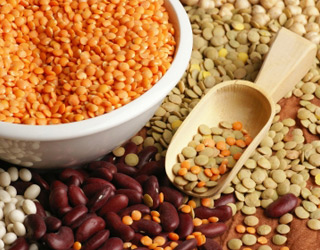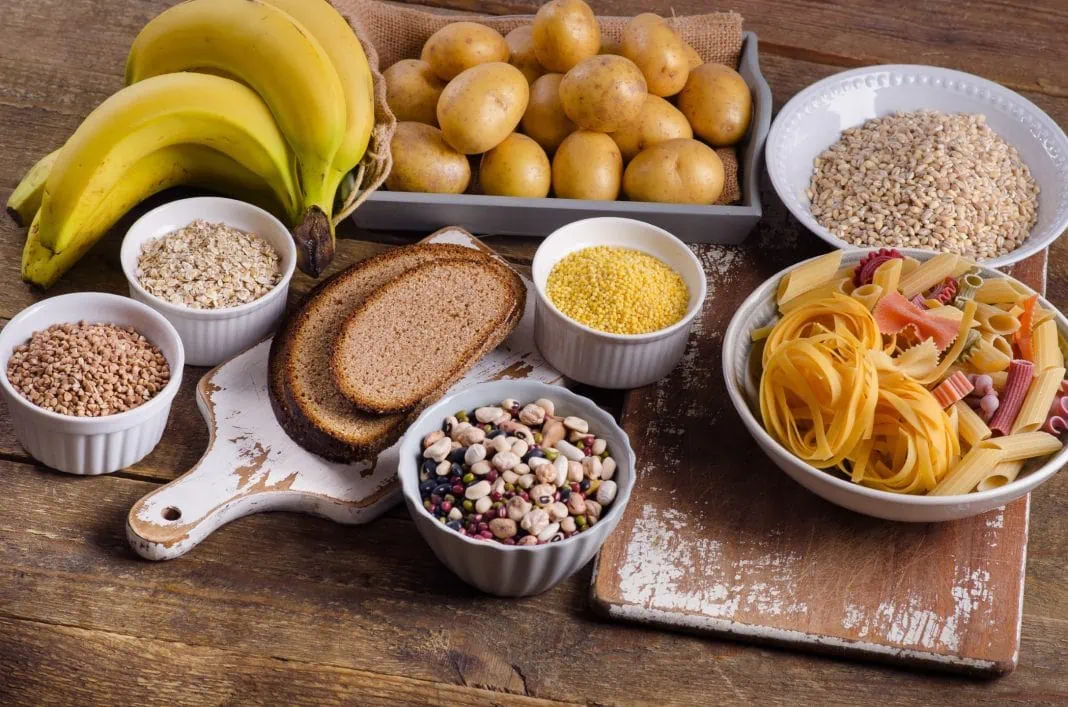Of the three main classes of macronutrients, carbohydrates are banned from many diets, and even nutritionists and health organizations consider them one of the major causes of obesity. Despite the bad reputation that carbs managed to earn, there are multiple types of carbohydrates, and not all have the same effect on the human organism.

What are carbohydrates?
Also known as saccharides, the main trait that defines carbs is that all of them contain only carbon, oxygen, and hydrogen. Based on the number of molecules in a carb’s structure, they are divided into monosaccharides, disaccharides, and polysaccharides.
The simple carbohydrates, monosaccharides, and disaccharides are the simplest forms of carbs and their names usually end up in “-ose”. Examples: glucose, fructose (in fruits), sucrose (in cane and beet sugar), lactose (in dairy).
Polysaccharides or complex carbohydrates are also divided into several types, but the ones we normally consume are called starches. These are the most frequent carbohydrate found in the human diet as staple foods (wheat, rice, potatoes, and corn) contain it in large amounts.

Which carbs are healthy and which are not?
The simple carbohydrates are quickly broken down by the human organism, so they provide short-term energy but not essential nutrients and vitamins. This doesn’t mean you should avoid them at all costs, as they are found in fruits, vegetables, milk, and other foods containing antioxidants, vitamins, and minerals. The simple carbs that are found in processed foods that lack other nutrients… those are the ones that should be avoided. Some of the most common foods include table sugar, candy, soft drinks, and syrups. White bread, pasta, and rice are other foods rich in simple carbohydrates and low in nutrients. It’s best to choose whole grain products as they haven’t been stripped of fiber, vitamins, fatty acids, and other nutritious substances.

Complex carbohydrates or starches take longer to be broken down and they do provide the human body with vital nutrients. Resistant starch is also a carbohydrate that acts as dietary fiber. Foods naturally containing complex carbohydrates include potatoes, beans, lentils, carrots, zucchini, cucumbers, and radishes. Vegetables also contain fiber, essential in the human diet as they promote weight loss and improve digestion.
Should we consume carbs daily?
Carbs are definitely just as important as fats and protein in our diet. We need all of these nutrients to be healthy and prevent diseases derived from poor nutrition. Of course, you can gain weight from carbohydrates, but it can also happen from protein and fat. No matter how healthy the foods we eat, eating too much of anything leads to excess calories and extra weight.
